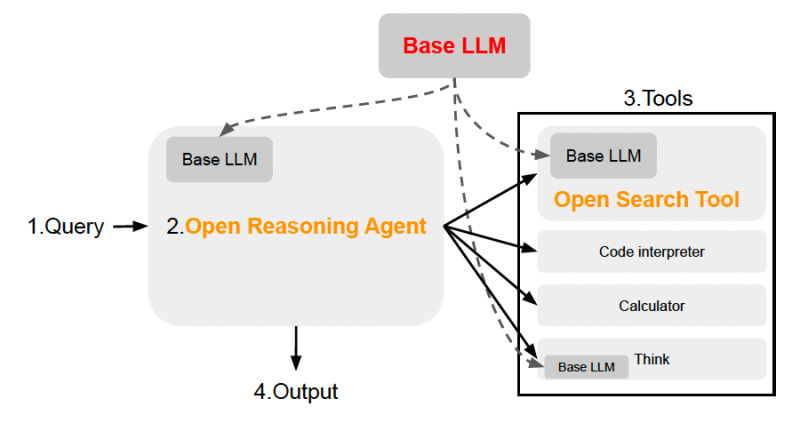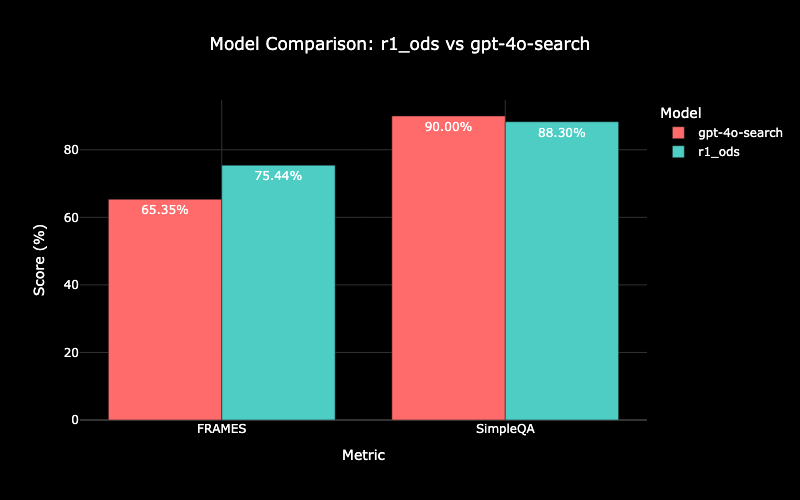An open-source alternative to Deep Research
Open Deep Search gives the power of frontier AI-powered search tools with flexibility and customizability.
Open Deep Search (ODS), an open-source framework released by Sentient Foundation, provides an alternative to AI search tools such as Perplexity and ChatGPT Search by enabling LLMs to use reasoning agents, web search, and other tools.
The problem with tools such as Perplexity is that they are proprietary and closed-source, making it difficult to customize them for bespoke applications and data sources.
ODS is designed as an open system that can be plugged into both open-source models like DeepSeek-R1 and closed ones such as Claude 3.7 Sonnet. ODS has two core components:
Open Search Tool takes a query and retrieves relevant information from the web. To improve search results, Open Search Tool rephrases the original query to capture different angles of the prompt. After fetching results from a search engine, it extracts context from the top results and uses chunking and re-ranking to extract the relevant parts.
Open Reasoning Agent receives the user's prompt and uses the base LLM and tools (including Open Search Tool) to generate the final answer. ODS includes two versions of Open Reasoning Agent:
ODS-v1 uses the ReAct agent framework with Chain-of-Thought (CoT) reasoning. ReAct combines reflections with actions and observations from actions. If the ReAct agent doesn’t reach the result, ODS-v1 defaults to a CoT with Self-Consistency, where the model samples several CoT results and chooses the answer that turns up more often than others.
ODS-v2 uses Chain-of-Code (CoC) and a CodeAct agent, implemented using the Hugging Face SmolAgents library. CoC uses the coding abilities of LLms to solve problems. CodeAct uses code generation for planning actions. ODS-v2 can orchestrate multiple tools and agents and accomplish tasks that require sophisticated planning and multiple search iterations.
Sentient tested ODS on top of DeepSeek-R1 and compared it with AI-search solutions (Perplexity AI and OpenAI's GPT-4o Search Preview) and standalone LLMs (GPT-4o and Llama-3.1-70B) on question-answering benchmarks tailored for AI search.
Both version of ODS outperformed or matched Perplexity and GPT-4o Search Preview on the benchmarks.
Interestingly, the reasoning agents in both ODS versions learned to use the search tool judiciously, often deciding whether an additional search was necessary based on the quality of the initial results.
For companies who want to implement AI reasoning capabilities grounded in real-time information, ODS can be a promising solution.
Sentient has released the code for ODS on GitHub.





